Beyond PR.
Climate justice at Cornell: Profit over planet.
A report by Alliance Partner Climate Justice Cornell
originally published in the 2023 Cornell Disorientation Guide
“As inequitable climate vulnerabilities increase, higher education has multiple emerging opportunities to resist, reverse, and repair climate injustices and related socioeconomic and health disparities. Rather than continuing to perpetuate the concentration of wealth and power by promoting climate isolationism’s narrow focus on technological innovation and by prioritizing the financial success of alumni and the institution…universities have an opportunity to leverage their unique role as powerful anchor institutions to demonstrate climate justice innovations and catalyze social change toward a more equitable, renewable-based future.”
Summary for Changemakers
Cornell paints itself as a global leader in sustainability and climate change research with a campaign to “do the greatest good.” Yet, almost every Cornell sustainability initiative occurs in the context of profit maximization, with the 2030 carbon neutrality plan falling short of addressing root causes of environmental issues beyond land conservation and ambiguous emissions reduction goals. From hosting the likes of oil and energy giants Chevron and Haliburton at career fairs to paving over culturally valuable natural areas without public consent, Cornell has a lot left to do to be the global leader it claims to be.
Our Alliance Partner Climate Justice Cornell provides incisive analysis of Cornell's role in underfunded public transit and the destruction of Redbud Woods, ongoing divestment challenges, and excessive food waste.
Navigate our findings on the state of climate justice at Cornell:
Introduction
The Razing of Redbud Woods and the Refusal to Fund Free and Expanded Public Transport (TCAT)
Current Fossil Fuel Investments & Fossil Fuel Divestment
Waste at Cornell
Introduction
Cornell paints itself as a global leader in sustainability and climate change research with a campaign to “do the greatest good”. Yet, almost every Cornell sustainability initiative occurs in the context of profit maximization, with the 2030 carbon neutrality plan falling short of addressing root causes of environmental issues beyond land conservation and ambiguous emissions reduction goals. From hosting the likes of oil and energy giants Chevron and Haliburton at career fairs to paving over culturally valuable natural areas without public consent, Cornell has a lot left to do to be the global leader it claims to be. Below is a list of just a few of Cornell’s environmental failures:
2. The Razing of Redbud Woods and the Refusal to Fund Free and Expanded Public Transport (TCAT)
In 2005, Cornell wanted to destroy a patch of woodlands known as “Redbud Woods” to pave a parking lot for the West Campus Residential Initiative. Weeks of direct action by activists culminated in an occupation of the woods. Despite the city’s recognition of the woods as historic land and extensive media coverage, the University removed the woods upon the condition that students entering in the fall of 2005 and spring of 2006 would receive free TCAT (Tompkins Consolidated Area Transit) bus passes and conditional amnesty from legal and disciplinary charges for the student activists. Yet, only first-year students continue to be provided with free TCAT passes, with Cornell administration undoing the free passes for all other students in 2007 saying: “The agreement stated that we would provide the passes to first-year students for a year,” and adding “there is no such thing as free transit.” You can still visit the previous site of Redbud Woods and view the plaque erected by community members about this event.
Currently, Cornell funds less than 1⁄3 of TCAT’s budget, while students make up 75% of its ridership. As a community activist noted in a Cornell Daily Sun article, Cornell’s statement that they provide 70% of TCAT funding is like “claiming your child’s lunch money as a donation to their school.” Since “Cornell provides a 6 percent share of TCAT’s annual budget, while also serving as the largest customer of TCAT, buying their staff and students rides...[at] a reduced rate,”4 it is not presenting itself in good faith.
So what is FreeCAT? It’s a campaign by students, local leaders, and local activists that calls for an expansion of TCAT’s routes and services and fare-free transportation for all. Organized by the Ithaca DSA, Cornell Progressives, Ithaca Sunrise, and Climate Justice Cornell, this campaign calls on Cornell to pay its fair share and increase its funding of TCAT. FreeCAT is an important step in making Ithaca more accessible, creating better working conditions for TCAT employees, and holding Cornell accountable for its impact on the greater community.
3. Current Fossil Fuel Investments & Fossil Fuel Divestment
In December 2019, Climate Justice Cornell escalated demands for the university to divest from fossil fuels by occupying administrative offices on the third floor of Day Hall. In the following months, Climate Justice Cornell and a coalition of other student organizations used weekly direct actions to successfully compel the Board of Trustees to place a moratorium on new fossil fuel investments. The most notable of these actions was a mock wedding between Cornell and the Fossil Fuel industry.
Today, a crippling lack of transparency from the Cornell Administration obscures our knowledge of the extent to which this“divestment” promise was fulfilled. Although Cornell does not choose individual fossil fuel companies to invest in, the university is still linked to several corporate entities, including large stock market indexes such as the S&P 500 which retain significant investments in fossil fuels. Thus 4.2% of Cornell’s long-term investments— amounting to $411 million— remain in extractive industries.
Additionally, TIAA, or Teachers Insurance Annuity Association, is a dominant manager of Cornell faculty retirement plans. Despite TIAA’s public relations campaign that paints them as invested in sustainability (i.e. through “carbon neutral funds”), this corporation has 78 billion dollars invested in the extraction of fossil fuels and international deforestation projects that violate community land rights. Cornell Dyson Professor Maureen O’Hara sits on the board of TIAA and has ignored a resolution passed in 2021 by the University Assembly, a body that includes undergraduate and graduate students, staff, and faculty, calling on TIAA to divest.
Cornell’s 2020 divestment “promise” cannot be fulfilled when the company that supposedly secures our professor’s livelihoods is the 4th largest holder of coal bonds, 8th largest holder of oil and gas bonds in the world, and is actively engaged in ecological destruction in the US, Latin America, and Southeast Asia. In response to this ethical contradiction, Climate Justice Cornell has joined a nationwide coalition of students and educators calling for TIAA Divestment.
4. Waste at Cornell
Cornell is a regional leader in waste production despite its rigorous greenwashing campaign. Dining halls frequently use disposable dishes and silverware despite an available inventory of reusable equivalents, and strict administrative guidelines prevent Cornell Dining workers from redistributing and composting uneaten food to its full extent, lest they send the message that food can be free on campus. The Cornell Food Recovery Network maintains a relationship with the Ithaca nonprofit Friendship Donations Network, which works to redistribute prepared food from dining halls to the Ithaca community.
However, these pickups are restricted by Cornell Dining' arbitrary metrics, which require only frozen food to be recovered. Thus large volumes of edible food are wasted daily while nearly 1 in 3 students go hungry. Not only does this practice ignore the present food insecurity on campus, it is also patently illegal in New York. Food production and waste is the leading cause of methane emissions in America, and Cornell’s carbon emissions tunnel vision ignores the way that we participate in and perpetuate an egregiously unsustainable food system while members of our own community struggle to afford food.
Report reprinted on January 29, 2024 with permission of Climate Justice Cornell from the 2023 Cornell Disorientation Guide


